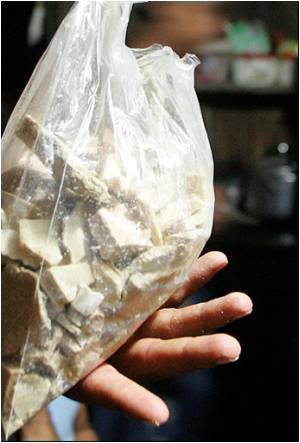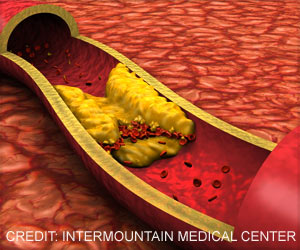Regular cocaine use significantly boosts the risk of heart attack and stroke, finds an Australian study.

The researchers used magnetic resonance imaging (MRI) to measure the effects of cocaine in 20 otherwise healthy adults who chronically used the illegal substance.
Compared with 20 non-users, cocaine users had higher rates of multiple factors associated with higher risks of heart attack and stroke: 30 percent to 35 percent increase in aortic stiffening; 8 mm Hg higher systolic blood pressure; and 18 percent greater thickness of the heart's left ventricle wall.
"It's so sad. We are repeatedly seeing young, otherwise fit individuals suffering massive heart attacks related to cocaine use. Despite being well-educated professionals, they have no knowledge of the health consequences of regularly using cocaine," said Gemma Figtree, M.B.B.S., D.Phil., lead researcher of the study.
"It's the perfect heart attack drug," she said.
The combined effects of greater blood clotting, increased heart stress and more blood vessel constriction put users at high risk of a spontaneous heart attack, said Figtree, an associate professor of medicine at Sydney Medical School at the University of Sydney in Australia.
Advertisement
Researchers recruited recreational cocaine users (17 men, 3 women, average age 37) who reported using cocaine at least once a month for the last year. They completed questionnaires about their drug use, cardiovascular risk factors and socio-economic status.
Advertisement
In the study, investigators observed higher systolic blood pressure and increased arterial stiffness, in association with heart wall thickening.
"Stiffer vessels are known to be associated with elevated systolic blood pressure. As a result, the heart is required to work harder, and its walls become hypertrophied or thicker," Figtree said.
Researchers didn't find evidence of earlier silent heart attacks among cocaine users, contrary to previous studies.
The study is the first to document persistent hypertension and vascular stiffness in cocaine users, long after the acute effects have worn off.
Although it is currently unclear how repeated social cocaine use causes blood vessels to stiffen, researchers are investigating a signalling pathway that might be activated to cause such a response.
The study was presented at the American Heart Association's Scientific Sessions 2012.
Source-ANI














